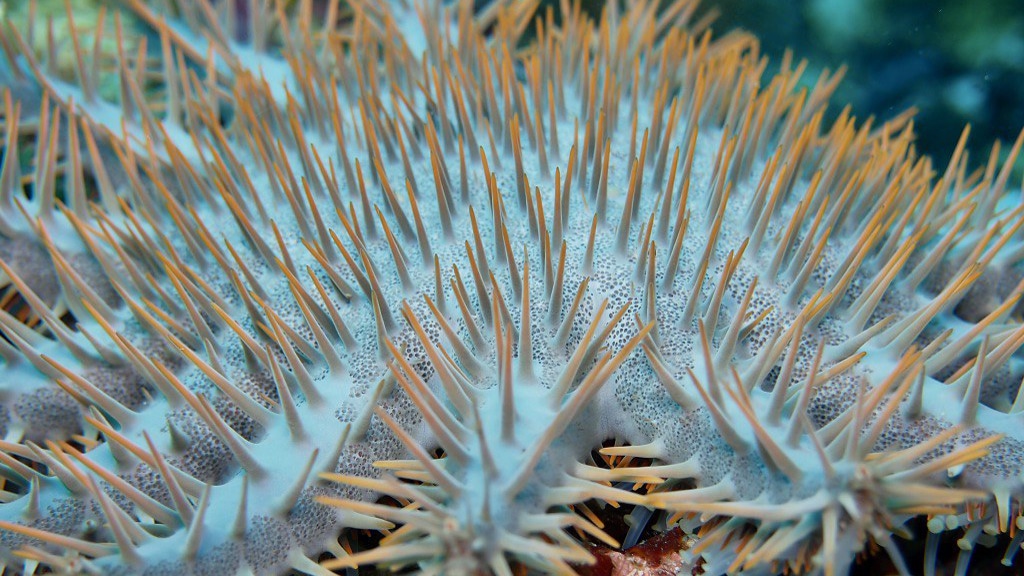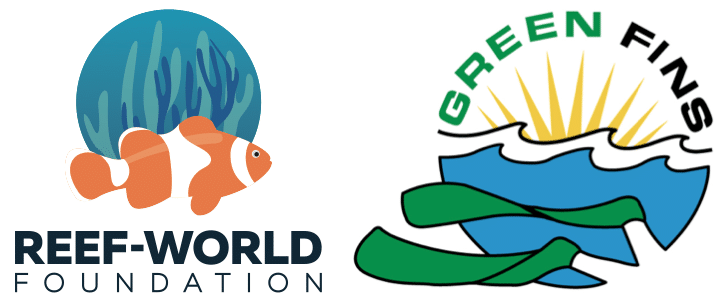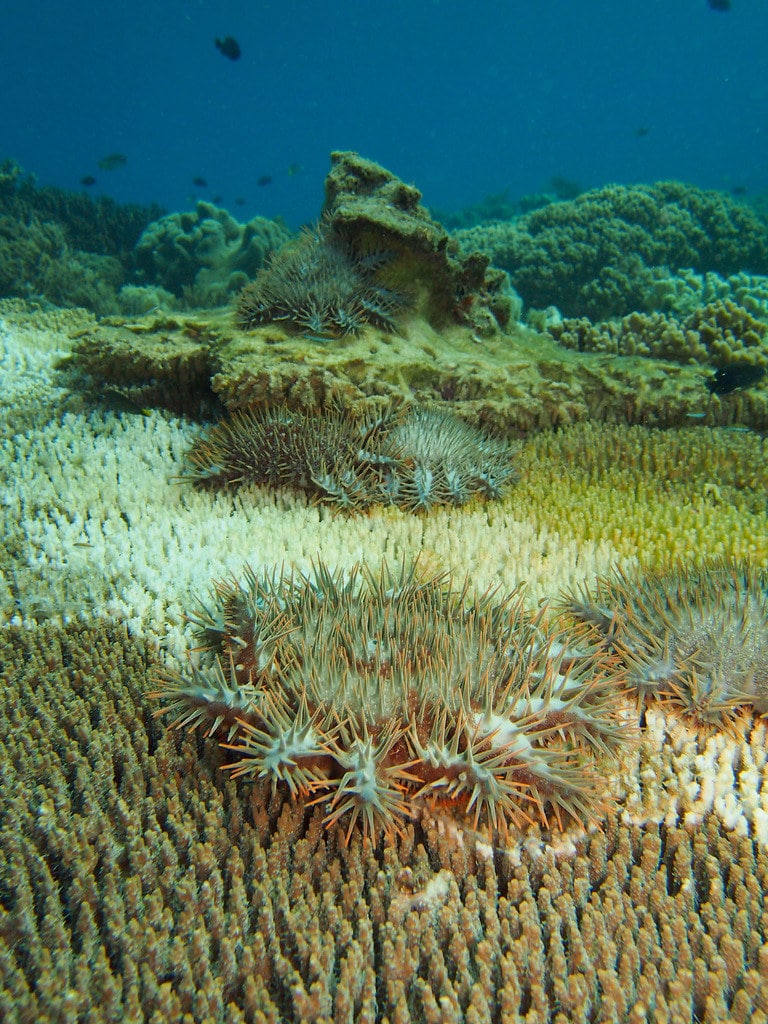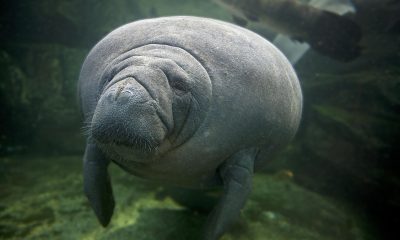Marine Life & Conservation
Reef-World launches Green Fins Crown-of-Thorns guidelines

 New guidance helping marine tourism operators conduct Crown-of-Thorns sea star (COTS) cleanups in an environmentally friendly way
New guidance helping marine tourism operators conduct Crown-of-Thorns sea star (COTS) cleanups in an environmentally friendly way
The Reef-World Foundation – the international coordinator of the UN Environment Programme’s Green Fins initiative – has launched new guidelines to help dive and snorkel operators assess when to conduct Crown-of-Thorns sea star (COTS) cleanups and how to do so in an environmentally friendly way.
The guidelines give some basic ecological information about Crown-of-Thorns sea stars (Acanthaster planci) to help marine tourism operators learn more about the species and how they’re different to other sea stars. The guidance also gives an overview of the role they play in a balanced ecosystem, why outbreaks occur, what signs indicate a COTS outbreak is happening on your reef and when and what steps you may need to take to protect your reef. For operators facing a COTS outbreak and are organising a cleanup, this document also includes tips to help ensure no further damage is caused to marine ecosystems in the techniques outlined.
Although a known coral predator, COTS’ natural role helps maintain coral diversity in a balanced ecosystem. This is because, by eating the faster growing coral species like Acropora, they allow different, slower growing corals to grow and create colonies, forming a diverse reef. However, frequent or persistent COTS outbreaks can exceed coral recovery rates causing extensive damage.
Samantha Craven, Programmes Manager at Reef-World, said: “Over the years, we’ve heard from Green Fins members who are facing COTS outbreaks and need support in dealing with the issue without inadvertently having a negative impact on coral reefs. That’s why we’ve created these Green Fins Crown-of-Thorns sea star cleanup guidelines, which summarise existing scientific guidance into one handy resource. The comprehensive resource can be used to ensure you and your team know when to act and are protecting marine habitats by following environmental best practice when dealing with an outbreak situation. We hope they’re useful to our network of Green Fins members and non-members alike.”
Gabriel Grimsditch, marine ecosystems expert at the UN Environment Programme, said: “COTS are well known to divers as a threat to corals, but they are also a natural part of a reef system. Keeping fast-growing corals in check allows space for the high diversity we are used to seeing, and COTS cleanups are not always recommended. The Green Fins Crown-of-Thorns Sea Star Cleanup Guidelines will help marine tourism operators gauge when a cleanup is really needed, and adapts information on conducting cleanups from COTS experts and reef management organisations specifically for the diving industry.”
The guidelines are available free of charge and can be downloaded here.
For more information, please visit www.reef-world.org or www.greenfins.net. Dive and snorkel operators interested in signing up to Green Fins can find the membership application form at: www.greenfins.net/how-to-join.
Marine Life & Conservation
Double Bubble for Basking Sharks

 The Shark Trust is excited to announce that, for two more days only, all donations, large or small, will be doubled in the Big Give Green Match Fund!
The Shark Trust is excited to announce that, for two more days only, all donations, large or small, will be doubled in the Big Give Green Match Fund!
Donate to Basking in Nature: Sighting Giants
The Shark Trust is hoping to raise £10k which will be doubled to £20k. This will go towards Basking in Nature: Sighting Giants. And they need YOUR help to reach they’re goal.
The Shark Trust’s citizen science project is to monitor and assess basking sharks through sightings; encouraging data collection, community engagement, and promoting nature accessibility. This initiative aims to enhance health and wellbeing by fostering a deeper connection with British Sharks.
Campaign Aims
- Increase citizen science reporting of Basking Sharks and other shark sightings to help inform shark and ray conservation.
- Provide educational talks about the diverse range of sharks and rays in British waters and accessible identification guides!
- Create engaging and fun information panels on how to ID the amazing sharks and rays we have on our doorstep! These can be used on coastal paths around the Southwest. With activities and information on how you can make a difference for sharks and rays!
- Promote mental wellbeing through increasing time in nature and discovering the wonders beneath the waves!
Donate, and double your impact. Click Here
Marine Life & Conservation
Leading UK-based shark conservation charity, the Shark Trust, is delighted to announce tour operator Diverse Travel as a Corporate Patron

 Corporate Patrons provide a valuable boost to the work of The Shark Trust. The Trust team works globally to safeguard the future of sharks, and their close cousins, the skates and rays, engaging with a global network of scientists, policymakers, conservation professionals, businesses and supporters to further shark conservation.
Corporate Patrons provide a valuable boost to the work of The Shark Trust. The Trust team works globally to safeguard the future of sharks, and their close cousins, the skates and rays, engaging with a global network of scientists, policymakers, conservation professionals, businesses and supporters to further shark conservation.
Specialist tour operator Diverse Travel has operated since 2014 and is committed to offering its guests high quality, sustainable scuba diving holidays worldwide. Working together with the Shark Trust will enable both organisations to widen engagement and encourage divers and snorkellers to actively get involved in shark conservation.
“Sharks are truly at the heart of every diver and at Diverse Travel, we absolutely share that passion. There is nothing like seeing a shark in the wild – it’s a moment that stays with you forever!” says Holly Bredin, Sales & Marketing Manager, Diverse Travel.
“We’re delighted to celebrate our 10th year of business by becoming a Corporate Patron of the Shark Trust. This is an exciting partnership for Diverse and our guests. We will be donating on behalf of every person who books a holiday with us to contribute towards their vital shark conservation initiatives around the world. We will also be working together with the Trust to inspire divers, snorkellers and other travellers to take an active role – at home and abroad – in citizen science projects and other activities.”
Paul Cox, CEO of The Shark Trust, said:
“It’s an exciting partnership and we’re thrilled to be working with Diverse Travel to enable more divers and travellers to get involved with sharks and shark conservation. Sharks face considerable conservation challenges but, through collaboration and collective action, we can secure a brighter future for sharks and their ocean home. This new partnership takes us one more valuable step towards that goal.”
For more information about the Shark Trust visit their website here.
For more about Diverse Travel click here.
-

 News3 months ago
News3 months agoHone your underwater photography skills with Alphamarine Photography at Red Sea Diving Safari in March
-

 News3 months ago
News3 months agoCapturing Critters in Lembeh Underwater Photography Workshop 2024: Event Roundup
-

 Marine Life & Conservation Blogs3 months ago
Marine Life & Conservation Blogs3 months agoCreature Feature: Swell Sharks
-

 Blogs2 months ago
Blogs2 months agoMurex Resorts: Passport to Paradise!
-

 Blogs2 months ago
Blogs2 months agoDiver Discovering Whale Skeletons Beneath Ice Judged World’s Best Underwater Photograph
-

 Marine Life & Conservation2 months ago
Marine Life & Conservation2 months agoSave the Manatee Club launches brand new webcams at Silver Springs State Park, Florida
-

 Gear Reviews3 months ago
Gear Reviews3 months agoGear Review: Oceanic+ Dive Housing for iPhone
-

 Gear Reviews2 weeks ago
Gear Reviews2 weeks agoGEAR REVIEW – Revolutionising Diving Comfort: The Sharkskin T2 Chillproof Suit

















